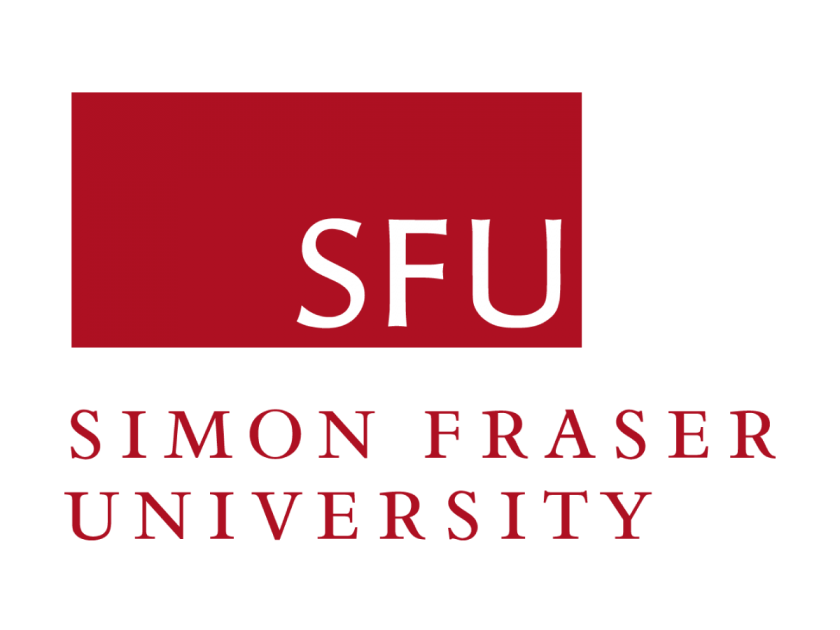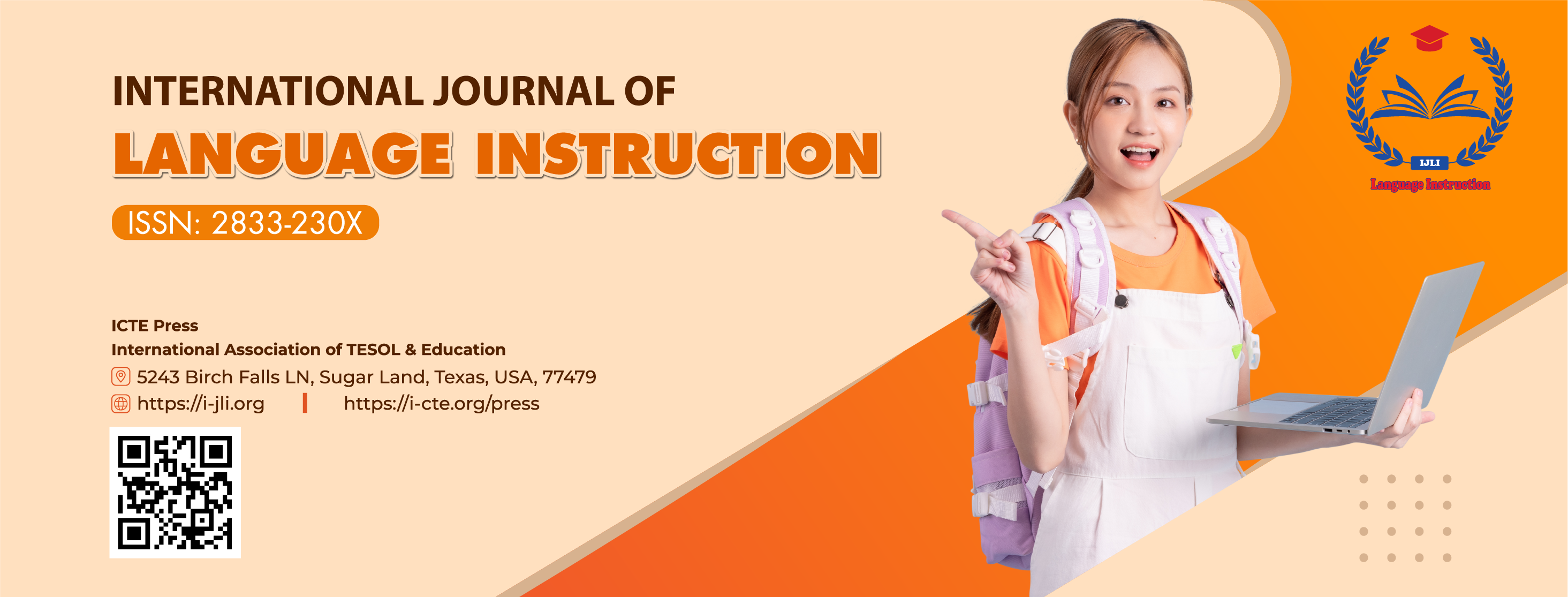EFL Students’ Attitudes Towards Teacher Correction and Peer Correction in Writing Skills
DOI:
https://doi.org/10.54855/ijli.221113Keywords:
error correction, teacher correction, peer correction, corrective feedback, attitudesAbstract
The purpose of this study was to (1) find out the attitudes of non-English speaking students at Tra Vinh University towards error correction in writing skills, including teacher and peer correction, and (2) discover their perspectives on the benefits and drawbacks of both types of corrective feedback. A questionnaire with 25 items and an interview with two questions about the chosen research topic was used to gather the data for this study. 13 non-English-speaking students with majors in Vietnamese literature and Accounting were the primary participants in this study at Tra Vinh University. The findings indicated that the majority of participants highly appreciated teacher correction. Nevertheless, peer correction was also preferred by some participants. This meant that the participants’ attitudes towards teacher and peer correction varied significantly, which gave a wide range of thorough insights for further studies in this area.
References
Arif, M. D., & Lestari, Hj. L. A. (2014). Students’ responses toward peer review in writing. RETAIN, 2(3), 1-7.
Bandura, A. (1986). Social foundations of thought and action. Englewood Cliffs, NJ, 1986 (23–28).
Ferris, D. R. (2004). The “grammar correction” debate in L2 writing: Where are we, and where do we go from here? (and what do we do in the meantime…?). Journal of Second Language Writing, 13(1), 49–62.
Ganji, M. (2009). Teacher-correction, peer-correction and self-correction: Their impacts on Iranian students’ IELTS essay writing performance. Journal of Asia TEFL, 6(1), 117-139.
Hamouda, A. (2011). A study of students and teachers’ preferences and attitudes towards correction of classroom written errors in Saudi EFL context. English Language Teaching, 4(3), 128–141.
Hermanto, H. (2008). The influence of language competence, writing competence, and cultural competence on producing a successful writing. Journal Social Humanitora (JSH), 1(2), 185–195.
Hyland, F. (2003). Focusing on form: Student engagement with teacher feedback. System, 31(2), 217–230.
Hyland, K., & Hyland, F. (2006). Feedback on second language students’ writing. Language Teaching, 39(2), 83–101.
Jacobs, G. M., Curtis, A., Braine, G., & Huang, S.-Y. (1998). Feedback on student writing: taking the middle path. Journal of Second Language Writing, 7(3), 307–317.
Jimena, E. D., Tedjaatmadja, H. M., & Tian, M. (2005). Error correction: A bridge to grammatical accuracy in L2 writing. International Conference on Language and Communication and Culture: Dialogs and Contexts in Focus. Bangkok.
Kavaliauskienė, G., & Anusienė, L. (2012). Case study: Learner attitudes towards the correction of mistakes. Social Technologies, 2(1), 88–101.
Kusumaningrum, S. R., Cahyono, B. Y., & Prayogo, J. A. (2019). The effect of different types of peer feedback provision on EFL students’ writing performance. International Journal of Instruction, 12(1), 213–224.
Le, M. T. (2022). The effects of collaborative writing to learners’ text in terms of writing accuracy from sociocultural theory perspective. International Journal of TESOL & Education, 2(1), 54-62. DOI: https://doi.org/10.54855/ijte2202014
Lee, I. (2005). Error correction in the L2 writing classroom: What do students think? TESL Canada Journal, 22(2), 1–16.
Lundstrom, K., & Baker, W. (2009). To give is better than to receive: The benefits of peer review to the reviewer’s own writing. Journal of Second Language Writing, 18(1), 30–43.
Ngo, T. H. T.,& Tran, T. T. O.(2021). The English-majored Students’ Practices of Mind Maps in Writing Skills. International Journal of TESOL & Education, 1(3), pp. 301-312. EOI: http://eoi.citefactor.org/10.11250/ijte.01.03.017
Maarof, N., Yamat, H., & Li, K. L. (2011). Role of teacher, peer and teacher-peer feedback in enhancing ESL students’ writing. World Applied Sciences Journal, 15(1), 29–35.
Motlagh, L. N. (2015). Who do learners prefer to be corrected by? Teachers or classmates? Procedia-Social and Behavioral Sciences, 199, 381–386.
Oladejo, J. A. (1993). Error correction in ESL: Learner’s preferences. TESL Canada Journal, 10(2), 71–89.
Oroujlou, N., & Vahedi, M. (2011). Motivation, attitude, and language learning. Procedia-Social and Behavioral Sciences, 29, 994–1000.
Paulus, T. M. (1999). The effect of peer and teacher feedback on student writing. Journal of Second Language Writing, 8(3), 265–289.
Perdani, Y. D. (2020). Peer-correction technique in writing class. English Focus: Journal of English Language Education, 4(1), 29–41.
Price, M., Handley, K., Millar, J., & O’donovan, B. (2010). Feedback: All that effort, but what is the effect? Assessment & Evaluation in Higher Education, 35(3), 277–289.
Ramírez Balderas, I., & Guillén Cuamatzi, P. M. (2018). Self and peer correction to improve college students’ writing skills. Profile Issues in Teachers Professional Development, 20(2), 179–194.
Sapkota, A. (2012). Developing students’ writing skill through peer and teacher correction: An action research. Journal of NELTA, 17(1–2), 70–82.
Wagiyo, Supiah (2021). The Use of Journal Writing in Teaching English Writing (November 7, 2021). https://papers.ssrn.com/sol3/cf_dev/AbsByAuth.cfm?per_id=4902361, Available at SSRN: https://ssrn.com/abstract=3958273
Thongrin, S. (2001). The effectiveness of self-, peer-and teacher-corrected writing on writing achievement of undergraduate political science students at Thammasat university. 1(2), 119–135.
Tsui, A. B., & Ng, M. (2000). Do secondary L2 writers benefit from peer comments? Journal of Second Language Writing, 9(2), 147–170.
Widarinsih, I. (2015). How to improve students’ wrtiting skills (A classroom action research of the tenth grade of SMA Muhammadiyah (Plus) Salatiga in the academic year of 2015/2016). IAIN Salatiga
Yang, M., Badger, R., & Yu, Z. (2006). A comparative study of peer and teacher feedback in a Chinese EFL writing class. Journal of Second Language Writing, 15(3), 179–200.
Downloads
Published
Issue
Section
License
Copyright (c) 2022 Vo Thi Thanh Mai

This work is licensed under a Creative Commons Attribution-NonCommercial 4.0 International License.
The copyright of all articles published in the International Journal of Language Instruction (ijli) remains with the Authors, i.e. Authors retain full ownership of their article. Permitted third-party reuse of the open access articles is defined by the applicable Creative Commons (CC) end-user license which is accepted by the Authors upon submission of their paper. All articles in the ijli are published under the CC BY-NC 4.0 license, meaning that end users can freely share an article (i.e. copy and redistribute the material in any medium or format) and adapt it (i.e. remix, transform and build upon the material) on the condition that proper attribution is given (i.e. appropriate credit, a link to the applicable license and an indication if any changes were made; all in such a way that does not suggest that the licensor endorses the user or the use) and the material is only used for non-commercial purposes.
Authors are able to enter into separate, additional contractual arrangements for the non-exclusive distribution of the journal's published version of the work (e.g., post it to an institutional repository, in a journal or publish it in a book), with an acknowledgment of its initial publication in this journal.











